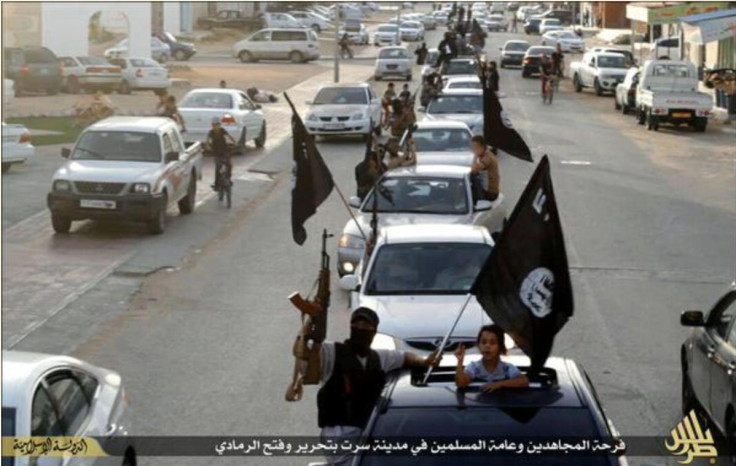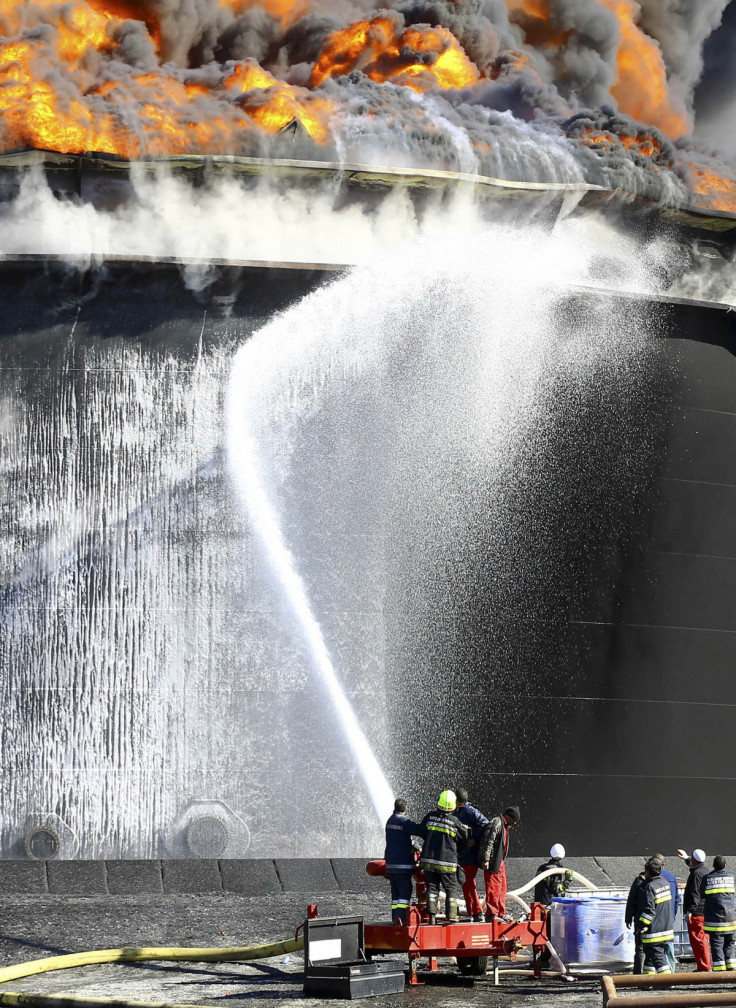Isis in Libya: Daesh battles over ports capable of exporting $23m of oil every day

A battle is raging in Libya's oil crescent, the heart of the North African nation's exporting operation, as the Islamic State (Isis) makes its first concerted effort to wrest control of Sidra and Ras Lanuf, two of the country's largest oil terminals. Combined, the ports are capable of processing 640,000 barrels of oil per day – worth more than $23m (£16m).
In the third day of fighting, as fires rage at five oil storage tanks at the facilities, an official with Libya's National Oil Corporation (NOC) told IBTimes UK the clashes were "a complete disaster for the country". Speaking on condition of anonymity, he added a clear picture of what was going on was difficult to come by as the situation developed.

Reuters news agency reported 30 IS (Daesh) fighters had been killed and two tanks captured since the beginning of clashes on 4 January, quoting a spokesman for the Petroleum Facilities Guards. Nine of the guards which hold Sidra and Ras Lanuf had been killed in the fighting and more than 40 injured.
Bloody images have emerged on social media apparently showing pick-up trucks laden with dead IS fighters. Petroleum Facilities Guards have posed for victory pictures with the bodies. The troops, which have an ambiguous alliance with Libya's Beida government, have claimed the defeat of IS in Sidra and Ras Lanuf – however, sporadic clashes continue.
IS (Daesh) began its assault with a series of suicide car bomb attacks. It posted pictures of the three attackers online in the aftermath of the initial onslaught, naming the militants and praising them as martyrs.
The first of the fires, which have raged at tanks holding hundreds of thousands of barrels of oil, were triggered by the blasts. Two more caught alight after they were hit by IS shelling. The blaze then spread to a total of five depots despite the efforts of firefighters to control them.
It appears the move by IS to take control of the ports has more to do with projecting power than their immediate economic potential.
4 oil reservoirs in Ras Lanuf and Sidra on fire after attacks by #ISIS. #Libya pic.twitter.com/BD4CUAtlhx
— Alwasat (@alwasatengnews) January 6, 2016John Hamilton, the London Director of Cross Border Information, told IBTimes UK the control of Sidra and Ras Lanuf would, in the first instance, supply IS with a PR victory."If they can gain control of these facilities and hold key assets then they demonstrate the authorities are not in charge," he explained.
In the second instance the facilities could offer IS protection if a military intervention against them is given the go-ahead, Hamilton said. "If they are going to come under significant military pressure, with the assumption of a coordinated, internationally supported effort, then I think life is going to be made very difficult for them. Controlling one of these important assets means they have protection and it gives them leverage," he explained.

However, Hamilton dismissed out of hand the idea that IS would begin exporting from the terminals either into the Mediterranean or south in to the Sahel and beyond. He explained the model used by IS in Iraq had already proven unworkable in Libya. Previous attempts by the Petroleum Facilities Guards and the government in Beida to sell oil have proven unsuccessful.
The offensive by Islamic State has already shaken Libya's fragile status quo, exacerbating divisions between Libya's government in Beida and the Petroleum Facilities Guard led by federalist and arch opportunist Ibrahim Jadhran.
Jadhran emerged on Libyan television in the middle of the IS clashes to denounce the nominal head of Libya's eastern armed forces General Khalifa Hafter.
Hafter has been a divisive figure in Libya not least because of his role in as senior commander in Muammar Gaddafi's army. Jadhran called IS and Hafter "two sides of the same coin". An association between Hafter and the IS, which has taken control of Gaddafi's former Sirte heartland, is frequently made by officials in the Tripoli, opposed to Beida.
The offshoot of IS in Libya took complete control of the central Libyan city of Sirte when, at the end of May, the group captured the city's civilian airport, pushing out forces loyal to Libya's Tripoli-based government. IS has exploited a political vacuum in Libya over the past year, using a stalemate between the country's two rival governments to exert its control. A number of Islamist militias, remnants of Libya's 2011 liberation war, have allied themselves with the group.
© Copyright IBTimes 2025. All rights reserved.






















